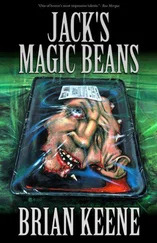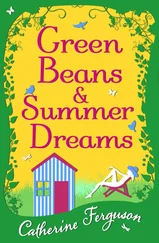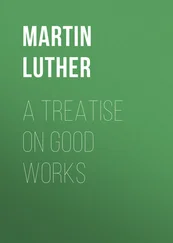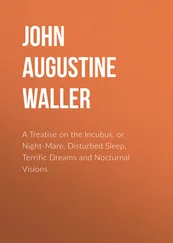Maybe they were right to, because if you’d visited one of our lessons and heard us stammering out answers, or seen the scrawl in our notebooks, I don’t know if you could have told who’d had how many years of schooling versus who was just starting. For instance, for several lessons we practiced writing our signatures, because we even made mistakes writing our own names. Besides, reading and writing wasn’t the most important thing there.
For a trade, I picked welding. I don’t know where I got the idea. I’d never seen anyone welding. I’d only seen iron being forged in a smithy. And once I heard the blacksmith say to someone that he couldn’t help with a particular repair, that it would need to be welded. But after a year it turned out there weren’t enough welding torches to go around. Plus, the ones they did have kept breaking down. Not to mention that you’d often have to wait forever for a delivery of oxygen cylinders.
So they put me in with the electricians. The school could train any number of electricians, since the electrification of the villages was beginning. Just like when I picked welding I had no idea how welding was done, I also had no idea what electricity was. How could I have? The only light I knew was the sun and oil lamps. Though Uncle Jan had told us that in some cities they even lit the street lamps with electricity. And that in the houses, it was everywhere. When we asked what electricity was, he said it shines much brighter than an oil lamp. You don’t need to add oil, or clean the glass, or trim the wick. There’s a switch on the wall, you turn it and the light comes on.
Why did they put me with the electricians and not the bricklayers or the joiners, for instance? Well, when I picked welding I had to pass a test that involved climbing a pole. Because welders often have to work high up. They needed to check whether I could handle heights, or if I’d get dizzy. There was a pole on the playground, with the bark stripped off, it was all slippery from those tests. I shinned up it all the way to the top. I might have gone even higher, but they started shouting from below:
“Come down! There’s nothing above the pole! You’re done! Come down!”
Because what was a pole like that for me? I used to climb every tree in the woods. The highest poplars along the Rutka. And let me tell you, poplars are the hardest trees to climb. Especially if it’s a tall thin one. I’d pull myself up with my arms alone, brace my bare feet against the trunk, without any belt. And since electrician training depended on passing that test, as electricians even more than welders work high up, they decided I could just as well be an electrician as a welder.
Electrician or welder, it was all the same to me. The only thing keeping me in that school was the chance of learning the saxophone. Otherwise I would have run away like others did. Sometimes they’d catch them and make them come back to school, other times they vanished without a trace. Me, they wouldn’t have caught me, I knew where I’d need to go.
Almost every evening I went down to the rec room and practiced. We’d come back for example from a whole day filling in trenches, we’d be fit to drop, our eyelids drooping with sleep, sometimes the other boys would collapse on their beds even without washing or eating, but I’d go to the rec room and practice. My hands would be numb from using the shovel, my lips were cracked from thirst, but I had to practice at least a bit. Once in a while the music teacher would come by. He’d sit and listen, taking swigs from that bottle of his. From time to time he’d correct something I was doing, make a suggestion, or offer an excuse, say that if only he weren’t drunk. And since the more swigs he took the drunker he got, he’d end up just mumbling after every sip:
“You’re a stubborn one, that you are. But music likes the stubborn ones. It may even repay you for it one day. But don’t give up. Never give up. It doesn’t always repay people, but maybe with you it will. Maybe you’ll know that happiness. Sometimes it sucks you in to the point that you lose yourself, you lose the will to live. But maybe you’ll be lucky. Don’t give up. And it’d be good if one of these days you found a better teacher. One who’s not a drunk. A real teacher. Forgive me, son, I just have to. I hope it never happens to you.”
He’d sometimes even fall asleep with the bottle in his hand. I’d take it from him and slip it back in the pocket where he always kept it. He’d wake, smile, then go back to sleep. I’d tell him to wake up and go to his room. He lived in the teacher’s block. I’d shake him. Or tell him the commandant was coming, so as to scare him into getting up. But he was only afraid of the commandant when he was sober. When he was drunk, even if I managed to wake him by mentioning the commandant, he’d only spit out some cuss word, mumbling as if I’d made him mad. You know where that peasant can put it, son. Sorry.
And he’d go back to sleep. What worked better was the trumpet, or best of all the flute. The flute seemed to reach deepest into his drunkenness. So if the trumpet didn’t do the job I’d put it down, pick up the flute and play it right by his ear. Not too loud, of course. After a moment he’d put his pinky finger in his ear and wiggle it, something evidently itched. Then, though his eyes were still closed, a smile would appear on his lips, when it was the flute that is. With the trumpet he’d make a face. Then he’d open one eye and give me a warm look for a moment. Then the other eye, though that one was usually indifferent and ponderous. Sometimes he’d wag his finger at me, but in a well-meaning way.
“You are a stubborn one.” Especially because his finger, trembling along with his drunken hand, wasn’t exactly threatening. “Don’t give up. Don’t give up.”
And he’d reach into his pocket for the bottle. Often there’d be nothing left in it, but still he’d tip it back and get a last drop.
“You see, son,” he’d say, sighing heavily as if at the empty bottle. “You see, I’ve gone to the dogs. But you, don’t you give up.”
But in order for him to let me take him back to his room, I’d first have to sit him, drunk as he was, in front of the piano. He would say he just had to play a few bars, then we could go. But it was never just a few bars. There were times he played and played. Despite being drunk, you wouldn’t have credited it. The strangest thing was that his hands sobered up completely, you had the feeling they were stroking the keys.
His hands were slim like yours, with long fingers. When I watch you shelling the beans it’s like I’m watching his hands on the keyboard. Come on, you must have done this before. You’re already better at it than I am. My hands are stiff. You wouldn’t have gotten so good so quickly if you hadn’t ever done it before. We haven’t shelled that much yet, but already you’re doing such a good job I can’t believe it. Maybe you just forgot? When you haven’t done something in years you can forget it, even shelling beans. You can forget anything. But it doesn’t take much to remember again. I’d forgotten too. That’s why I planted beans, so I could remember once more. Though like I said, I’m not even that fond of beans. I can take them or leave them.
Do you play the piano? No, I was just asking. I can still see those hands of his as he sat drunk at the piano. It was like he himself was intoxicated, then there were his hands living a life of their own on the keyboard, sober as can be. He may have been a great musician, who can know. The fact that he was playing in that pseudo-school of ours was another matter. How many people are there that are in the wrong place? No, he didn’t just play the piano. He could play any instrument he picked up. Violin, flute, cello, French horn, anything. Of course, only if he wasn’t too inebriated. For me he recommended I concentrate on the violin. He didn’t like the saxophone.
Читать дальше












